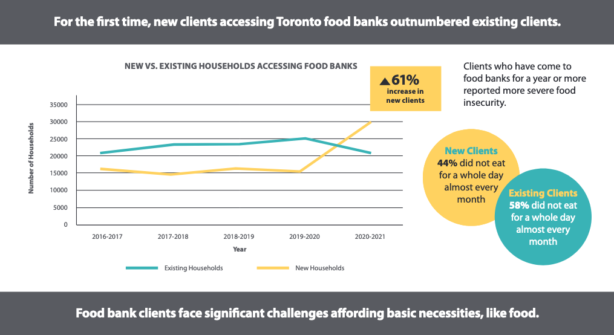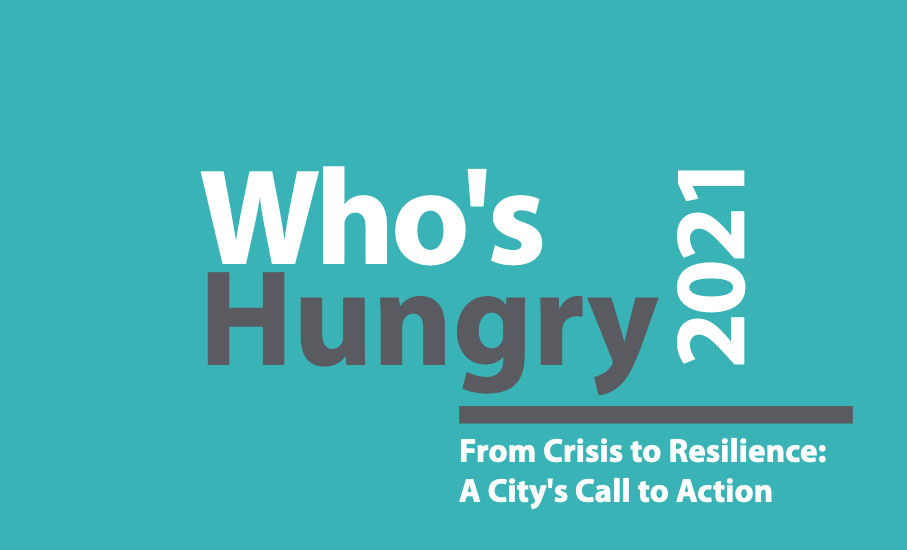Comments Off on Who’s Hungry 2021
Who’s Hungry 2021 – From Crisis to Resilience: A City’s Call to Action
In partnership, Daily Bread Food Bank and North York Harvest Food Bank have released Who’s Hungry 2021. This year’s report is a call to action from a city in crisis, and explores ways in which together, we can build greater resiliency.
ACCESS THE REPORT GET THE SNAPSHOT
There were close to 1.45 million food bank visits in the past year, the highest number of visits ever recorded in the city’s history and close to 1.5 times greater than the previous record set in 2010 in the aftermath of the 2008 financial crisis.
For the first time, new clients accessing Toronto food banks outnumbered existing clients, as unemployment and underemployment soared.

Some of the key findings of the report include:
- Food bank clients are experiencing severe food insecurity. 51% of respondents missed a meal to pay for something else. Of food bank clients that identified a disability, 41% went a whole day without eating food, compared to 20% who did not identify a disability.
- Clients had a median of $9.17 left per person per day after rent and utilities were paid; for racialized respondents it was $6.67. If a food bank client takes two trips on the TTC, traveling to work and returning home, they would be left with only $2.77 at the end of the day. This is not enough to pay for food or other necessities.
- Food bank clients continue to struggle with employment uncertainty. One in five respondents reported that their employment will not last more than a year.
- 80% of food bank clients living in private market rentals (i.e. not subsidized housing) were paying more than half of their income on housing, putting them at high risk of homelessness.
The pandemic will not be the last emergency we face as a city. To move from crisis to resiliency in Toronto, we need all levels of government to continue to address the immediate fallout from COVID-19 by supporting low-income households who continue to struggle with job losses, reduced employment hours, and precarious housing as a direct result of the pandemic.
At the same time, we need to look to the future to build greater resiliency through systemic change by reducing precarious employment, improving income supports, investing in affordable childcare, and rapidly expanding access to affordable housing.
The time to act is now.
As part of North York Harvest’s commitment to providing dignified food assistance, education, advocacy, and long-term food solutions, we will continue to collaborate with the other community organizations, the government, and our partners in the private sector to achieve our vision of a community where all members are able to meet their food needs.


Comments are closed